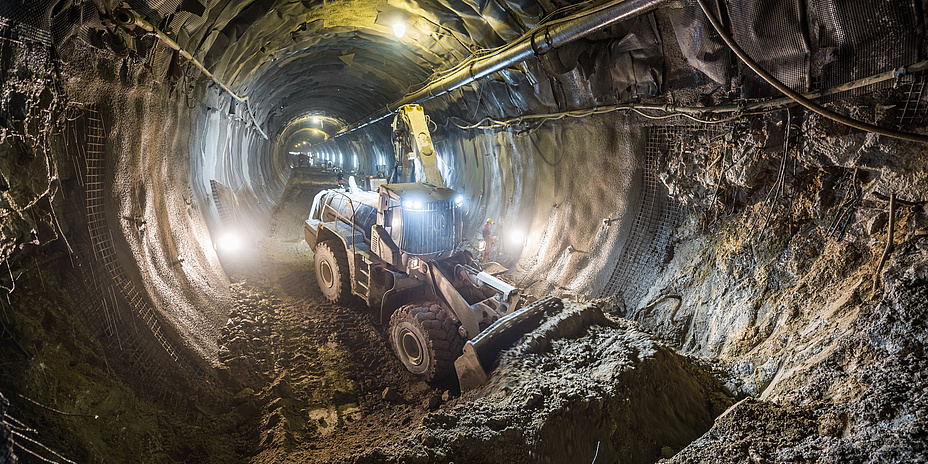Latest trends in tunnel construction: The university course NATM Engineering is starting in 2019 with new content

To satisfy worldwide steadily increasing demand for qualified tunnel engineers, TU Graz and the Montanuniversität Leoben initiated the NATM Engineering university course in 2009 as a world first. Since that time, 70 persons from 35 countries have received in-depth knowledge in geotechnical and tunnel engineering, especially in the New Austrian Tunnelling Method (NATM). Course directors Robert Galler (Montanuniversität Leoben) and Thomas Marcher (TU Graz) have now revised and supplemented the course content, and adapted the course to the current demands of the job market in this occupational field.
New content, more knowledge
In addition to the New Austrian Tunnelling Method, in future all the necessary skills for using tunnel-boring machines (TBM) will be passed on. ‘This machinery is being increasingly used in tunnel construction projects, particularly as the technology has been substantially improved in the last few years and economic efficiency shown,’ explains Thomas Marcher. Furthermore, the new curriculum places increasing emphasis on the maintenance and operation of tunnel structures. This has become necessary because many tunnel structures have meanwhile become old. ‘For this reason we are giving more attention to tunnel inspection, tunnel safety and risk analysis. More light will also be shed on the necessary work for tunnel maintenance,’ says Robert Galler.
Also, there is an intensive exchange of information on digitization technologies. ‘Innovations in mechanical engineering and measuring technology as well as increasing digitalisation are making enormous changes to tunnel construction. We want to give participants insights into these new developments in tunnel construction,’ says Thomas Marcher, who was recently installed as the head of the Institute of Rock Mechanics and Tunnelling at TU Graz, describing the aim of the course management.
New aspect of organisation: final semester dedicated to master’s thesis
The length of the programme is six semesters, and each semester comprises one module. The course is organised on a part-time basis. Participants travel to Graz and alternately to Leoben for three weeks each semester. This holds true also for the sixth module, which concentrates on the master’s thesis and the final exam; as Robert Galler explains: ‘The past has shown that our international students benefit from personal contact, which raises the quality of the thesis.’
At the end of the course, graduates should be able to independently plan tunnel structures according to NATM principles and be able to implement them, or at least be involved in the implementation in an advisory capacity.
Kontakt
Course director at TU Graz:
Thomas MARCHER
Tel.: +43 316 873 8114
Email: thomas.marcher@tugraz.at
http://www.tunnel.tugraz.at
Course director at the University of Leoben:
Robert GALLER
Tel.: +43 3842 402 3400
Email: robert.galler@unileoben.ac.at
http://www.subsurface.at



